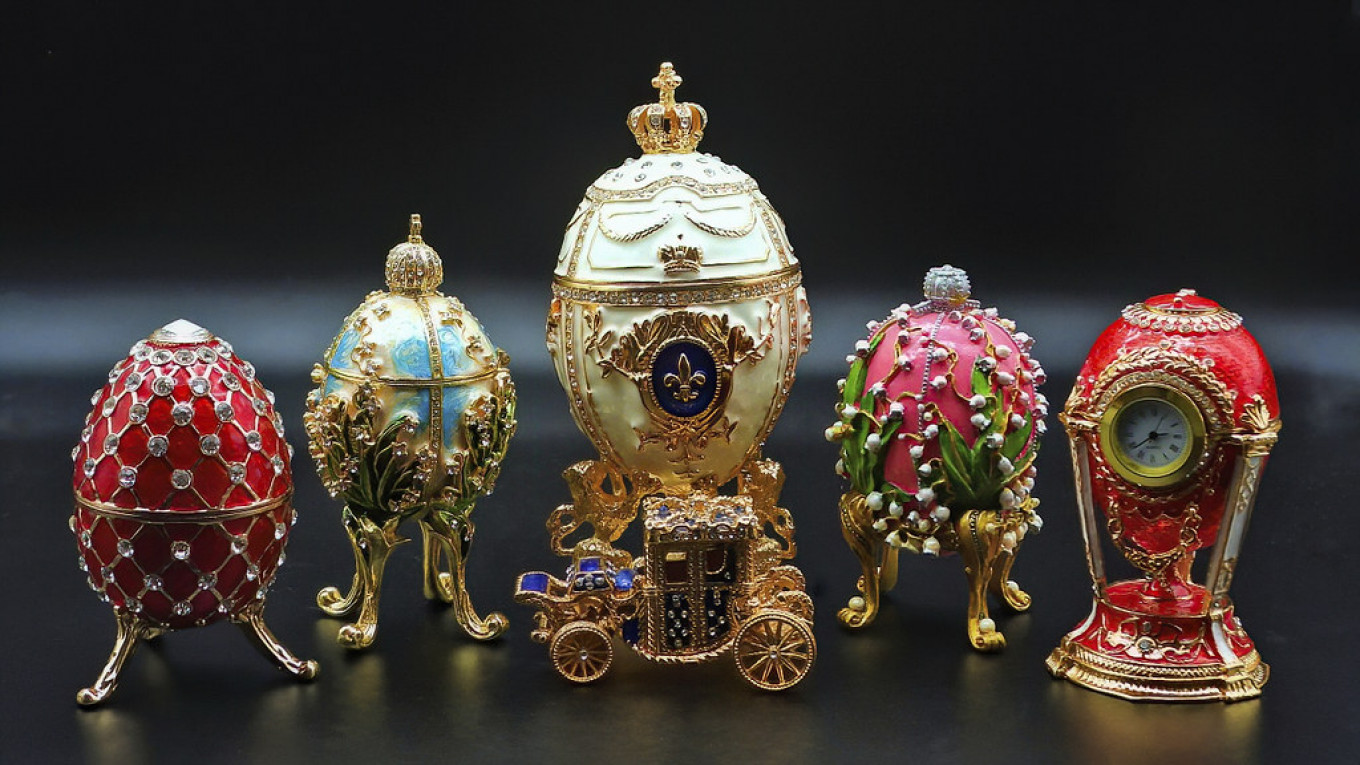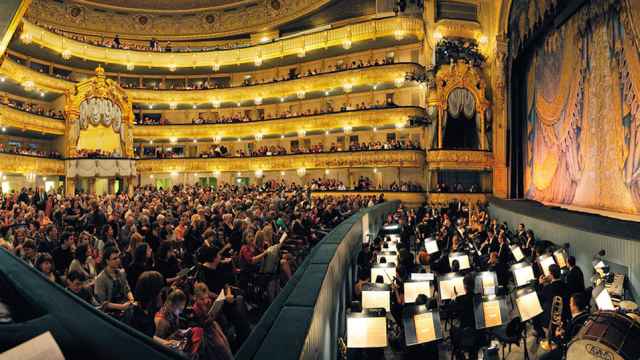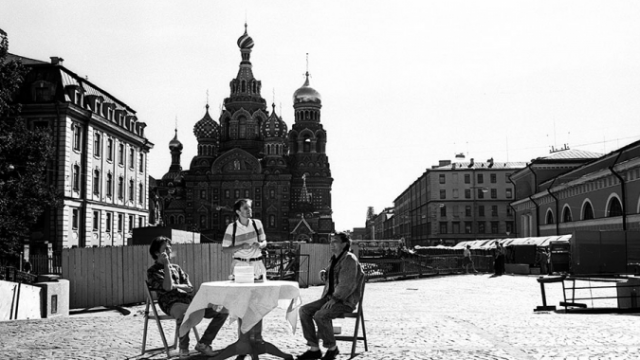The “Fabergé: Jeweler to the Imperial Court” exhibit at the Hermitage Museum finds itself at the center of a scandal about fakes.
It began with an accusation by one Russian art dealer about another Russian art dealer.
On Jan. 10 André Ruzhnikov, a London-based art and antiques specialist, wrote an open letter to the head of the Hermitage, Mikhail Piotrovsky, accusing the museum of exhibiting fake works by Fabergé. The letter was illustrated with annotated photographs of the suspect objects.
Many of the works in question are from a private Fabergé Museum in Baden-Baden, founded by another Russian art collector, Alexander Ivanov. Ruzhnikov followed up his first open letter with another about the show, which he called “a sort of Encyclopedia of Forgeries,” including a photoshopped image of Ivanov wearing a disputed Fabergé tiara.
The two dealers have had a long acrimonious relationship. In a previous dispute Ivanov announced that Ruzhnikov would be “taken to America in handcuffs.”
A BBC investigation published on Monday links Ivanov to businessman Konstantin Goloshchapov, who has close ties to President Vladimir Putin, the article asserts.
Ivanov told the BBC that he borrowed money from Goloshchapov to open his private Faberge Museum in Baden-Baden, Germany. Goloshchapov is a patron of the Museum of Christian Culture and Ivanov is a patron of the Russian National Museum, which does not seem to have an exhibition space. Both museums provided exhibits for the show.
Several European specialists in Fabergé contacted by the BBC raised concerns about at least 20 items on display, although it is not clear if they have examined the pieces personally. Some members of the Hermitage Museum staff have also expressed their concerns.
Items from Ivanov's collection on display at the Hermitage resemble some exhibits in the Fabergé collection at the Moscow Fersman Mineralogical Museum, the BBC investigation says.
The Hermitage Museum and Mikhail Piotrovsky have not responded to the letters or media queries.
A Message from The Moscow Times:
Dear readers,
We are facing unprecedented challenges. Russia's Prosecutor General's Office has designated The Moscow Times as an "undesirable" organization, criminalizing our work and putting our staff at risk of prosecution. This follows our earlier unjust labeling as a "foreign agent."
These actions are direct attempts to silence independent journalism in Russia. The authorities claim our work "discredits the decisions of the Russian leadership." We see things differently: we strive to provide accurate, unbiased reporting on Russia.
We, the journalists of The Moscow Times, refuse to be silenced. But to continue our work, we need your help.
Your support, no matter how small, makes a world of difference. If you can, please support us monthly starting from just $2. It's quick to set up, and every contribution makes a significant impact.
By supporting The Moscow Times, you're defending open, independent journalism in the face of repression. Thank you for standing with us.
Remind me later.







